Editor: 周婷 Time: 2021-02-04 Number of visits: 24
From January 11 to January 29, 2021, the online winter school of Peter the great St. Petersburg Polytechnic University in Russia, undertook by the Physics Department of Zhejiang University, was held successfully. 12 students from Zhejiang University participated in six different courses of the winter school. Due to the epidemic situation, this winter school changed from offline courses to online ones. Through the convenient internet, the program included professional lectures, vlog experiments and cultural activities. The courses were short, but the content was rich and substantial. Although Russia was thousands of miles away, the program offered students wonderful communication experience.
1. Enjoy the interest of Physics
The Plasma Physics and Controlled Fusion course was rich in content, covering from the basic courses of plasma physics to the current mainstream controlled fusion device “Tokamak”. Immersed in the long history of plasma physics, students not only grasped the fundamental knowledge, but also get to the frontier of this field with the help of observation and practice in the laboratory. As a review of students' previous knowledge, the basic theoretical knowledge is also a key to the gate to new things. Moreover, based on the previous achievement, the introduction to frontier field encouraged students to go further on the road of physics.
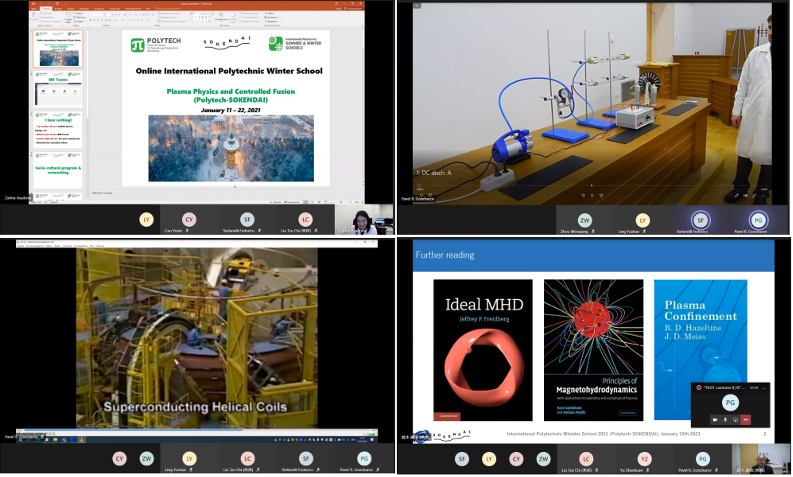
2. Explore the secret of Space and Algorithm
The “Space Technologies: Fundamentals” course was about the design and application of satellite. 13 professors were invited to present lectures in turn, the theme of which covering from cosmology and astrophysics to satellite structure, satellite launch, satellite communication rules and the development and application of modern satellite technology. Students also visited the Polytechnic Museum online to learn about the development of modern space and satellite technology in Russia. At the end of the course, the professor instructed the students to use the theoretical knowledge learned in the course to complete the design of a nanosatellite.
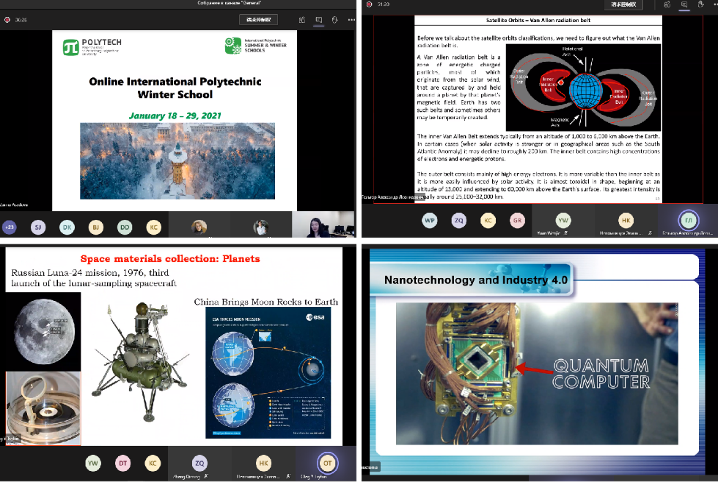
The Machine Learning Theory and Application course introduced the theories and implementation of various algorithms in detail, such as Decision Tree, Random Forest, XGBoost and other popular algorithms, and explained the application of neural networks such as DNN, RNN, CNN. With teachers’ encouragement, students also independently applied their knowledge and used various algorithms to solve problems in the real world, such as predicting the prices of flats in Moscow and predicting the prices of broccoli in market. During this course, students improved their English skills by communicating with teachers actively, and at the same time with the help of daily homework, students strengthened their Python programming skills and logical thinking ability.
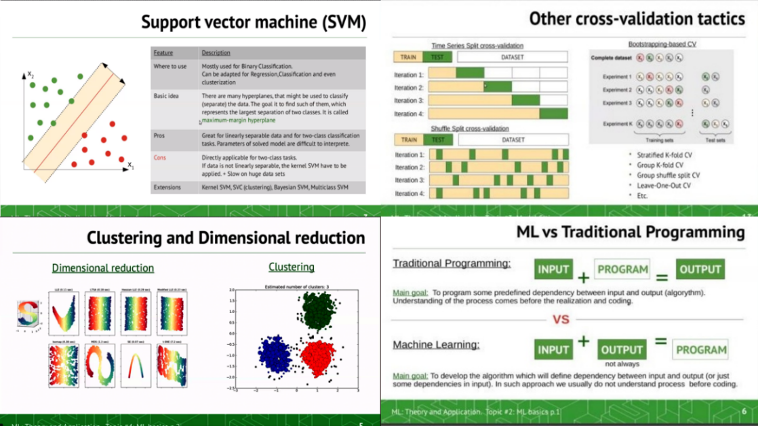
The Theory and Application of Big Data course taught students to use Python to solve big data processing problems. Starting from Python as the basic programming tool, to the linear regression function, then to the complex pandas, NumPy reference library and SQL courses, students learned diversified contents. In the final project, students estimated the global epidemic situation in the next week based on the data of COVID-19 in the past year, using the ARIMA and multiple linear fitting method.
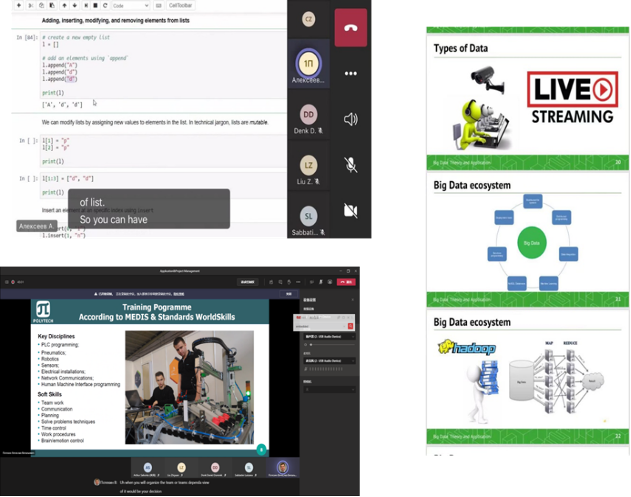
3. Feel the beauty of Russian language and Entrepreneurship
The “Russian language and culture” course covered three parts, which are Russian language group study,Russian art history and political life of contemporary Russia. During the course, students learned the pronunciation and writing of thirty-three letters, three parts of speech and six conjugations of verbs. With patient guidance and encouragement of the professor, students could eventually give the introduction of themselves, their family and their country in Russian. Students realized that Russian is such a bolding and vigorous language with strict grammar. In addition, lectures on art history made students feel at a gallery, while the ones on political life showed students an overview of the elemental facts, such as election and constitution.
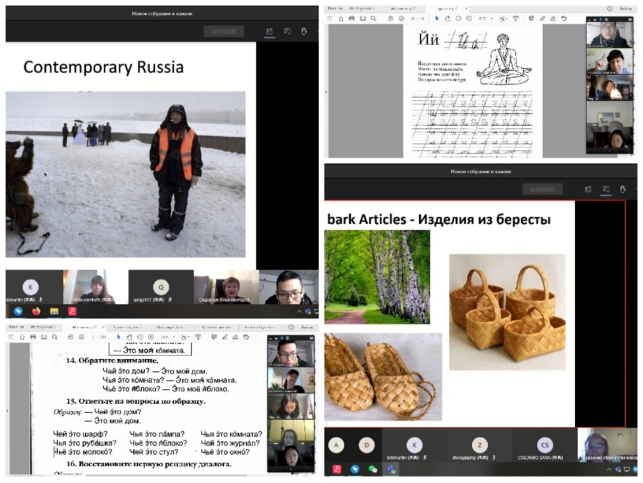
The “Technology Entrepreneurship” course covered the brief introduction to the main Russian participants in the innovation activities. Macro and micro perspectives of the innovation process were combined by the professor to illuminate the situation of not only Russian market but also global market. Points in the lecture were really novel, showing the difficult theories in a way which was easy to understand. The professor shared a sea of entrepreneurial knowledge and wonderful entrepreneurial stories, which made students have a deeper understanding of how to practice innovation and entrepreneurship in the new situation.
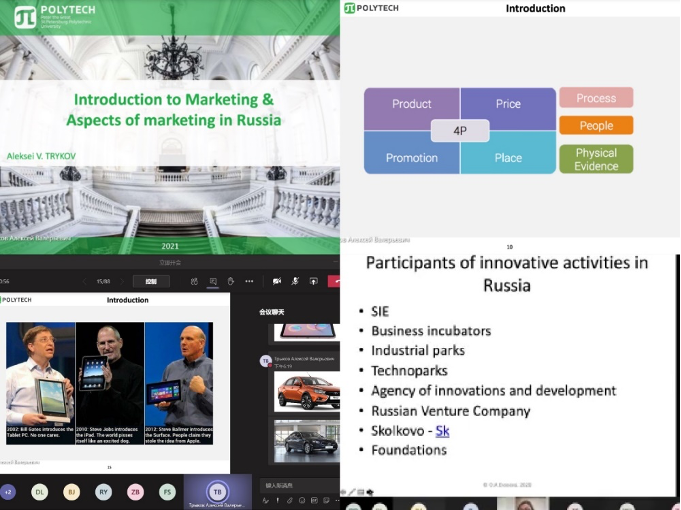
The exchange program has ended successfully, but students of ZJU have definitely gained more than just a program. Different teaching methods provided students with new possibilities and directions; wonderful Russian culture expanded students' horizons; online communication offered students precious opportunities to communicate with peers and professors from all over the world. We believe that in the future, this learning experience will become a great memory for students. And online communication will also create a new way for the intercollegiate and international exchange programs.

Add: No. 8 Hainayuan Building, Zijingang Campus, Zhejiang University, 866 Yuhangtang Rd, Hangzhou, 310027, P.R. China
Tel: +86-571-87953325
Fax: +86-571-87951895
Email: yongyi@zju.edu.cn